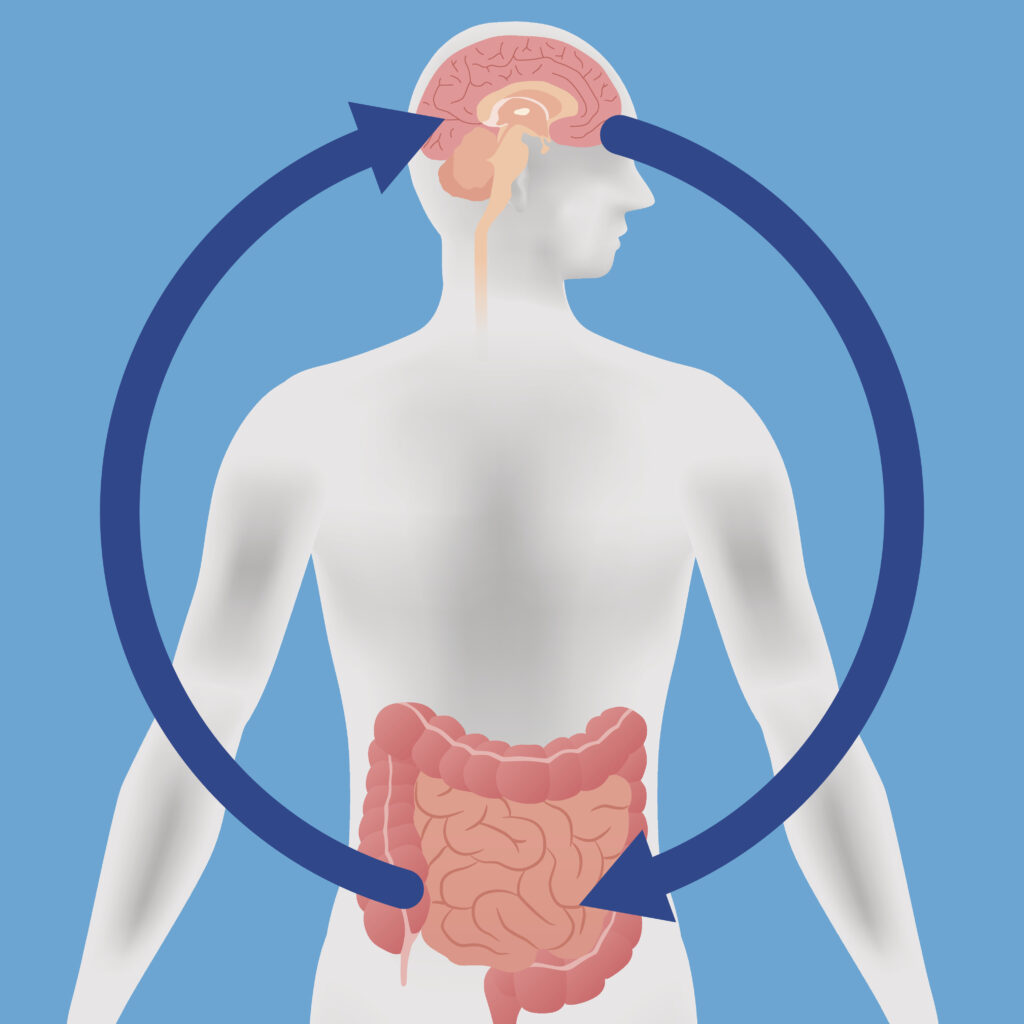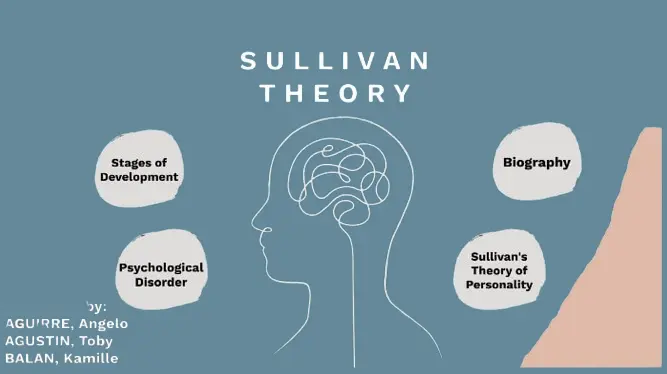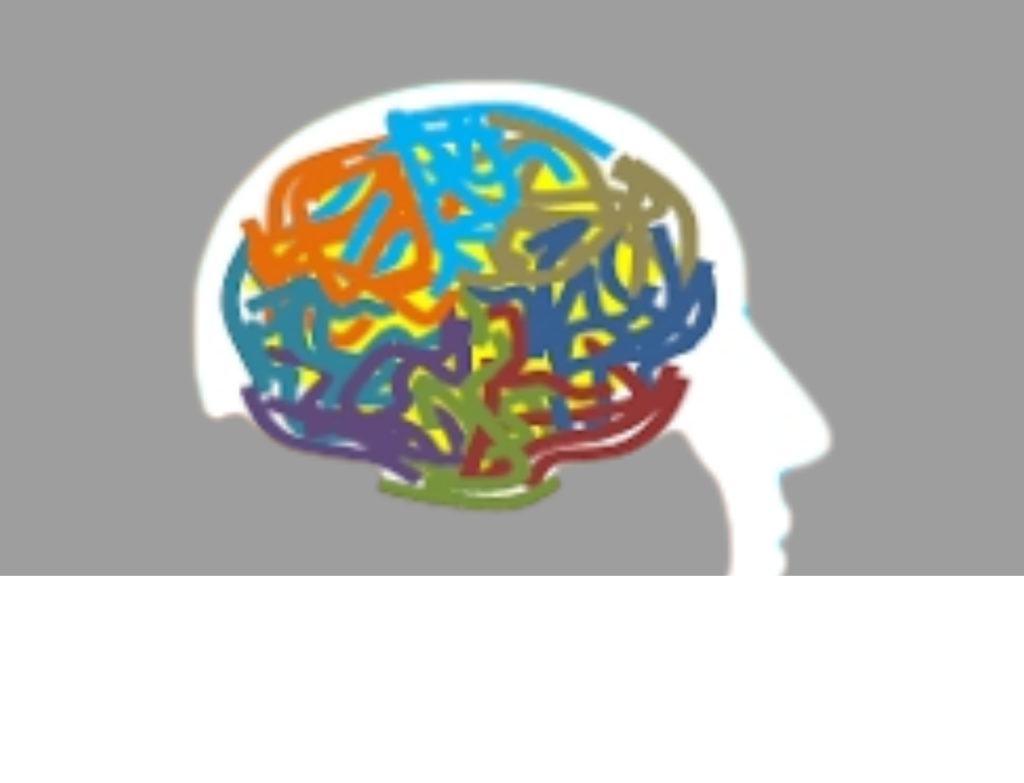Introduction: Understanding the Gut-Brain Connection
The human body is a fascinating network of systems working together to maintain balance, health, and well-being. For decades, scientists believed that mental and physical health were largely separate. However, modern research has revealed a powerful, two-way communication system between the gut and the brain—known as the gut-brain axis.

This connection explains why stress can upset your stomach, or why an unhealthy diet can make you feel anxious, moody, or mentally foggy. The gut is often called the “second brain”, and for good reason. It contains millions of neurons, produces key neurotransmitters like serotonin, and constantly sends signals to the brain about the body’s internal state.
Understanding how the gut-brain axis works is key to unlocking a new level of mental wellness. From depression and anxiety to focus and sleep quality, the health of your gut plays a bigger role in your mental state than most people realize.
What Is the Gut-Brain Axis and Its Role in Mental Health?
The gut-brain axis refers to the complex communication network linking the central nervous system (the brain and spinal cord) with the enteric nervous system (the network of neurons lining your digestive tract).
This axis is more than just a metaphor—it’s a biological reality. It involves neural, hormonal, and immune pathways that send messages back and forth between your gut and your brain every moment of the day.
The Role of the Vagus Nerve
At the center of this system is the vagus nerve, one of the longest nerves in the body. It acts as a communication superhighway, transmitting signals between the brain and the gut. When your gut microbiota—the trillions of bacteria living in your intestines—is healthy and balanced, it sends positive signals to the brain. But when it’s out of balance, it can send distress signals that may contribute to anxiety, depression, and other mental health issues.
The Gut Microbiome: Your Internal Ecosystem
Your gut microbiome is made up of bacteria, fungi, and other microorganisms that help digest food, produce vitamins, and support immune function. These microbes also help regulate the production of neurotransmitters like serotonin and dopamine, which are essential for mood regulation.
In fact, about 90% of the body’s serotonin—the “feel-good” chemical—is produced in the gut. This shows just how deeply our digestive system influences emotional well-being.
How Does Gut Health Relate to Mental Health?
The gut and brain are constantly exchanging information. When the gut is healthy, it promotes mental clarity, emotional stability, and resilience to stress. When it’s not, the effects can ripple through every aspect of mental functioning.
The Inflammation Connection
Poor gut health often leads to inflammation, which is a key factor in many mental health conditions. Chronic inflammation can alter brain chemistry, disrupt neurotransmitter balance, and increase the risk of depression and anxiety.
For instance, diets high in processed foods, sugar, and unhealthy fats can damage the gut lining, allowing toxins to enter the bloodstream—a condition known as leaky gut syndrome. This triggers an immune response that can affect mood and cognition.
The Microbiome and Mood
A healthy gut microbiome helps keep stress hormones like cortisol under control. Certain beneficial bacteria, such as Lactobacillus and Bifidobacterium, have been linked to reduced anxiety and improved emotional stability.
When the microbiome is unbalanced—due to antibiotics, poor diet, or chronic stress—harmful bacteria can dominate, producing toxic byproducts that affect brain function and mood regulation.
The Feedback Loop Between Gut and Brain
Stress and negative emotions can also impact gut health. When the brain perceives stress, it sends signals to the gut that alter digestion, nutrient absorption, and microbiota balance. This creates a vicious cycle where poor mental health worsens gut health, which in turn worsens mental health.
What Is the Gut-Brain Axis in Psychology Today?
Modern psychology increasingly acknowledges the gut-brain axis as a crucial factor in emotional and cognitive health. While traditional psychology focused primarily on the mind, newer approaches recognize the importance of the mind-body connection.
Integrative Psychology and Holistic Health
Many therapists and psychologists now incorporate nutritional psychiatry, mindfulness, and gut health awareness into their practices. The idea is that improving physical wellness—especially digestive health—can support emotional healing and mental clarity.
Psychological studies show that when individuals eat balanced diets rich in fiber, fermented foods, and healthy fats, they experience fewer symptoms of depression and anxiety. This supports the idea that food can serve as both nourishment and medicine for the mind.
The Biopsychosocial Model
In today’s psychology, the biopsychosocial model emphasizes how biological, psychological, and social factors interact to shape mental health. The gut-brain axis fits perfectly within this model, as it combines physical processes (gut microbiota and hormones) with psychological outcomes (mood and behavior).
The Future of Mental Health Treatment
Researchers are exploring how probiotics and prebiotics—known as “psychobiotics” when used for mental health—can help treat anxiety, depression, and cognitive decline. In the future, mental health treatment may include personalized gut microbiome therapies alongside traditional psychotherapy and medication.
What Affects the Gut-Brain Axis?
Several lifestyle and environmental factors can either strengthen or weaken the gut-brain connection. Understanding these influences helps you take control of both your digestive and mental health.
1. Diet
Food is the foundation of gut health. A diet rich in fiber, fruits, vegetables, legumes, and fermented foods supports a diverse and healthy microbiome. On the other hand, processed foods, artificial sweeteners, and refined sugars can harm beneficial bacteria and promote inflammation.
2. Stress
Chronic stress disrupts digestion, reduces beneficial gut bacteria, and increases intestinal permeability. Stress management techniques like deep breathing, meditation, and physical activity can restore balance to the gut-brain axis.
3. Sleep
Sleep deprivation affects the gut microbiome and weakens immune function. Consistent, high-quality sleep helps regulate both gut health and emotional stability.
4. Exercise
Regular physical activity promotes healthy gut motility, enhances microbiota diversity, and releases endorphins that improve mood. Even moderate exercise like walking or yoga has measurable benefits.
5. Medications
Antibiotics, painkillers, and certain psychiatric drugs can alter gut bacteria. While medication may be necessary, supporting gut recovery afterward with probiotics and nutrient-rich foods can help restore balance.
6. Environment
Exposure to pollutants, toxins, or chronic infections can disturb the gut microbiome. Clean air, safe water, and reduced exposure to chemicals help maintain gut integrity.
Practical Tips for Supporting Gut and Mental Wellness
Improving the gut-brain connection doesn’t require drastic changes. Small, consistent habits can create a major impact on your mental and physical health.
1. Eat for Your Gut
Focus on whole, unprocessed foods. Include:
- Fermented foods like yogurt, kefir, sauerkraut, and kimchi.
- High-fiber foods like oats, bananas, apples, beans, and leafy greens.
- Healthy fats such as olive oil, avocado, and nuts.
2. Manage Stress Daily
Even 10–15 minutes of relaxation daily can improve gut-brain harmony. Try:
- Meditation or mindfulness breathing
- Gentle yoga or tai chi
- Spending time in nature
3. Prioritize Sleep
Aim for 7–9 hours of quality sleep each night. Avoid screens before bed, create a calming nighttime routine, and keep your sleep environment cool and quiet.
4. Stay Hydrated
Water aids digestion, supports nutrient absorption, and helps flush toxins that can disrupt gut function.
5. Consider Probiotics and Prebiotics
Probiotics (found in fermented foods or supplements) add beneficial bacteria to your gut. Prebiotics (found in fiber-rich foods) feed those bacteria, keeping them active and balanced.
6. Exercise Regularly
Physical activity strengthens the gut-brain connection by reducing stress, improving digestion, and boosting mood-enhancing neurotransmitters.
7. Limit Alcohol and Processed Foods
Alcohol and processed foods can destroy beneficial gut bacteria and increase inflammation. Moderation is key to maintaining mental and gut balance.
Conclusion: Nurturing the Mind Through the Gut
The relationship between your gut and brain is a powerful reminder that mental health is not confined to the mind alone—it’s woven throughout the entire body. The gut-brain axis represents a partnership between physical nourishment and emotional resilience.
By taking care of your gut through mindful eating, stress management, good sleep, and regular movement, you can profoundly improve your mental clarity, mood, and overall quality of life.
The gut doesn’t just digest food—it digests experiences, emotions, and the rhythm of your daily life. When you nurture this connection, you’re not just healing your stomach—you’re strengthening your mind from the inside out.



